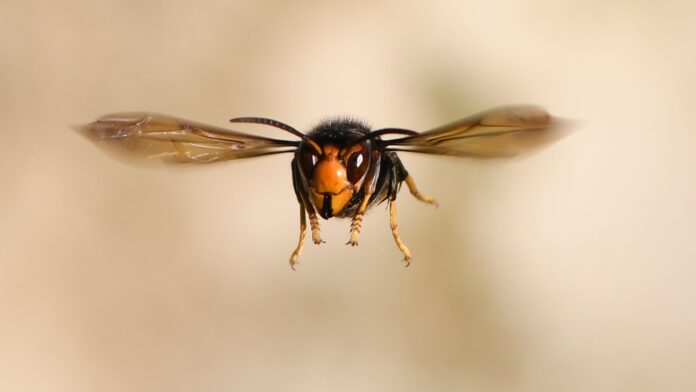Britain has been warned to stay vigilant as Asian hornets are on the rise. These large insects, scientifically known as Vespa velutina, pose a threat to honey bee colonies by preying on them for food. One hornet can take down up to 40 bees per minute due to its powerful mandibles.
Originating from temperate and tropical East Asia, South Asia, Mainland Southeast Asia, and parts of the Russian Far East, these killer insects have been spotted increasingly in the UK. In 2022, they were only sighted twice, but the number rose to 78 in 2023. So far in 2024, eight reports have been made in the UK, with the South East and Kent being at the forefront of the battle against them.
The British Beekeepers Association confirmed the presence of an Asian hornet in Ash, near Sandwich, in March 2024. Climate change is expected to make the UK a more favorable environment for these invasive species. Scientists have discovered nests in East Sussex, Kent, Devon, and Dorset.
Asian hornets are not generally aggressive but become highly defensive when it comes to protecting their nests. Their stings are said to be more painful and toxic compared to other stinging insects. Being allergic to their venom could result in a fatal outcome. If you spot an Asian hornet, it is crucial to report the sighting immediately to the Great British Non Native Species Secretariat.
To identify an Asian hornet nest, look for tall trees in urban or rural areas, sheds, garages, under decking, or in holes in walls or the ground. Disturbing a nest could provoke an attack by up to 700 hornets, which can be extremely dangerous.
It is important to take proper precautions and avoid provoking these insects. If stung, the pain can be intense, described as being stabbed by a red-hot needle. The toxicity of their venom can lead to severe swelling and discomfort for several days.
The economic cost of these invasive species worldwide has exceeded £300 billion a year.

